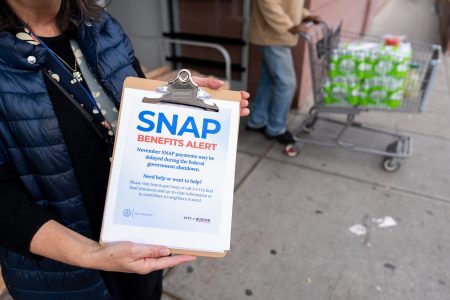Key takeaways
- Federal student loans are known for unique benefits like flexible qualification requirements, income-driven repayment plans and potential loan forgiveness.
- Recent changes to the federal loan program have taken some benefits away, at a time when private loan lenders are starting to offer products with features similar to federal loans.
- Even with recent changes and uncertainty, federal loans may still be the best first option.
Issues with federal loan servicers, uncertainty about loan forgiveness and new changes to the federal student loan program have left many wondering if private student loans may be a better option. Some borrowers may now need to use private loans in addition to their federal ones due to new federal loan amount caps. When private student loans become necessary, borrowers may want to consider lenders that offer products with federal loan-like benefits.
Changes to federal student loan benefits may force some to consider private loans
The passing of the 2025 reconciliation bill brings major overhauls to the federal student loan system, most of them starting July 1, 2026. The bill eliminates certain programs, including the Grad PLUS loan and most income-driven repayment plans. Borrowers will also lose hardship and unemployment deferment, as well as long forbearance timelines. The program now limits forbearance to 9 months during every 24-month period.
Additionally, the bill places borrowing limits on loans you could once use to fully fund your cost of attendance. With federal student loan borrowing limits now capped, many will need to find other funding sources.
“The new annual and aggregate loan limits specified in the budget reconciliation bill may shift some borrowing from federal student loans to private student loans when borrowers reach the loan limits, especially for parents and graduate students,” says leading student loan expert and Bankrate contributor Mark Kantrowitz.
Some federal student loan benefits remain
Federal student loans will still offer an income-driven repayment option, loan forgiveness programs and discharge options that most, if not all, private student loans lack. Federal loans also offer more flexible qualification requirements and fixed interest rates. These benefits may continue to make federal loans the clear winner in the federal vs. private student loans debate.
“You don’t need to have good credit to qualify for a federal student loan,” Kantrowitz says. The interest rate on federal loans is also the same for every borrower of that particular loan, regardless of their credit.
“The fixed interest rates on federal student loans may be better than on private student loans, especially for borrowers who do not have excellent credit,” he adds.
While some private student loan rates can be lower than federal loans, those rates are often reserved for borrowers (or cosigners) with excellent credit. But there are other federal loan-like benefits that some private lenders may offer to borrowers — some regardless of credit.
What federal loan-like benefits can you find with private lenders?
| Federal loan benefit |
Offered by some private lenders |
| A fixed interest rate that is the same regardless of credit |
No |
| No credit history or cosigner required for undergraduate and graduate loans |
Yes |
| Loan forgiveness programs, including public service loan forgiveness |
No |
| Potential loan forgiveness at the end of repayment term |
Yes |
| Interest on some loans may be covered while in school |
No |
| Income-driven repayment plans |
Yes |
| Grace periods |
Yes |
| No prepayment penalty |
Yes |
| Loan forgiveness for death or permanent disability |
Yes |
Some private student loans offer federal loan-like features
Despite changes, Bankrate experts still agree that federal aid is the best place to start your search for education financing. However, if student and parent borrowers need to turn to private loans after exhausting those resources, they may be able to keep or recapture some federal loan benefits at one of these lenders.
RISLA
Benefit: Income-based repayment, potential loan forgiveness
Rhode Island Student Loan Authority, or RISLA, provides an unusual income-based repayment (IBR) option for borrowers facing financial hardship. Just like the federal loan income-driven repayment plan, RISLA’s IBR plan bases a borrower’s monthly payment on income and family size. The borrower must show evidence of their financial hardship to qualify; additionally, they must verify their income and family size each year. IBR payments may change if that information changes. While the IBR program is intended to be a temporary program, not a standard repayment plan, RISLA will forgive any remaining balance after 300 payments or 25 years on the plan.
Ascent
Benefit: No credit score requirement, progressive repayment plan
Instead of basing eligibility on a student’s credit score, Ascent provides an outcomes-based student loan option for college juniors and seniors. This loan doesn’t require a credit score or cosigner. Your eligibility is determined by factors including — but not limited to — your school, program, GPA, academic performance and cost of attendance.
Ascent also offers a progressive repayment option for certain loans that allows you to reduce your monthly payment, then gradually increase it over time. With this option, you’ll still be able to pay the loan off in full within your original repayment term. This mimics the government’s now-eliminated graduated repayment plan, which featured low initial payments that gradually increased every two years.
YELO Funding
Benefit: No credit score requirement, income-contingent repayment, potential loan forgiveness
Dan Rubin, founder and CEO of YELO Funding, saw a gap in what he calls the “gap financing market” — when federal aid doesn’t cover the full cost of tuition and students turn to other options. “Not every kid comes from a socioeconomic background where their parents can borrow money … so they go through private lenders,” he says. “But private lenders mean you need to have a good credit score. And most importantly, you need to have a cosigner. And a lot of kids don’t have a good cosigner.”
According to Rubin, when a lack of credit or cosigner keeps students from borrowing money for school, they can’t live up to their potential.
What [private lenders] are doing is really looking at [a student’s] family history and their parents’ past instead of looking at their future. And it shouldn’t be that way. We need to change that dynamic.
— Dan Rubin, founder and CEO of YELO
Instead of requiring a credit score and/or cosigner, YELO considers factors like what the student will be studying and where, their GPA and experience, their earning potential and risk of unemployment. These are all important factors for YELO because the lender also uses an income-contingent repayment plan, similar to an income-share agreement. Borrowers enter into a contract in which they must pay a fixed percentage of their future income for a specific number of years. YELO pauses payments if the borrower loses their job and caps its APR and repayment amount. If the amount is not paid off within the repayment window, the borrower is off the hook for the rest.
ELFI and Laurel Road
Benefit: Forbearance up to 12 months
Beginning in 2027, borrowers experiencing unemployment may only pause payments on their federal loans for nine months during a 24-month period. However, some private lenders, including ELFI and Laurel Road may offer forbearance for up to 12 months.
ELFI’s forbearance is considered on a case-by-case basis and granted at the discretion of the lender. Laurel Road may offer economic hardship forbearance for up to twelve months (in three-month increments) and forbearance assistance for natural disasters for two months.
Sallie Mae
Benefit: Graduated repayment period
Sallie Mae offers a graduated repayment period (GRP) that allows you to make interest-only payments for the first 12 months after your grace period ends, then ramp up to standard principal and interest payments. This serves a similar function to the discontinued federal graduated repayment plan, allowing a less financially stressful transition school to career. According to Sallie Mae, it was the first private student lender to offer this type of repayment option.
Splash Financial
Benefit: Up to 25 years of repayment
While most private student loan lenders have repayment terms of up to 15 or 20 years, Splash Financial is one of the only private lenders that has repayment terms of up to 25 years. This is more in-tune with federal student loan income-driven repayment and extended repayment plans (now eliminated) that lasted for 25 years.
Bankrate insight
The majority of private loans offer a grace period after college graduation as well as no prepayment penalty and loan discharge due to death or permanent disability. However, it’s important to check with your lender and ensure you understand the terms of your loan before taking it out.
What should students consider when choosing their student loans?
“When considering a private student loan, borrowers should consider the interest rates, fees, and repayment term. This can manifest in differences in the monthly payment and the total payments over the life of the loan,” says Kantrowitz.
To see what different rates and terms will cause you to pay each month and in overall interest throughout the life of the loan, get prequalified with a few lenders and plug the different offers into a student loan calculator.
Private lenders offer private student loans with an expectation of earning a profit. If they offer loans to higher-risk borrowers, they will charge a higher price.
— Mark Kantrowitz, leading student loan expert
While private loan costs may be higher now, that may change. Kantrowitz predicts that increased demand may produce more competition among lenders, causing some to offer discounts and other features to attract better quality borrowers.
Decide what perks and features are most important to you. For most borrowers, federal loans will likely still check more of those boxes than private loans — at least for now.
Bottom line: Federal loans should still be the first option
Experts, including Kantrowitz, recommend students seek out federal student aid and federal loans before going for private options. They also warn that refinancing federal loans will forfeit those benefits and to think twice before doing so — even if student loan refinance rates may be lower or the loan may be easier to manage. And that advice still rings true. Because, despite recent changes and uncertainty, federal student loans still offer the most benefits. Additionally, applying for federal loans (start by completeing the FAFSA) also grants you access to other financial aid that doesn’t need to be paid back. So StudentAid.gov should be the first place you go to finance your education before using private loans to fill in funding gaps.
Rubin of YELO Funding agrees, saying he’s competing with other lenders trying to fill the gap between federal loans and tuition costs, not the federal loan program itself.
“Take as many subsidized, unsubsidized [federal] loans, scholarships and grants — as much as you can,” he says. “Then you can come to us.”
Why we ask for feedback
Your feedback helps us improve our content and services. It takes less than a minute to
complete.
Your responses are anonymous and will only be used for improving our website.
Help us improve our content
Read the full article here









